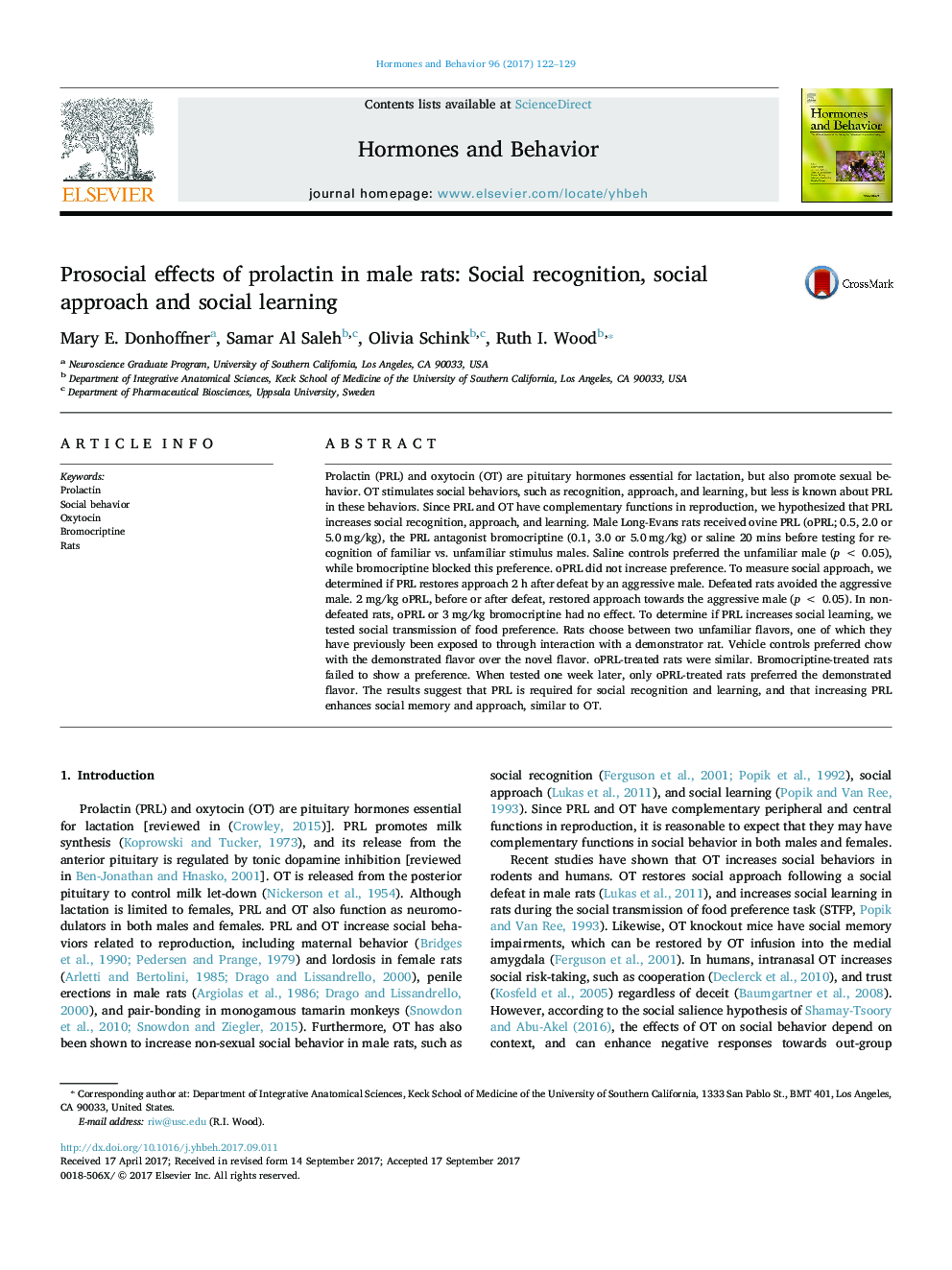| کد مقاله | کد نشریه | سال انتشار | مقاله انگلیسی | نسخه تمام متن |
|---|---|---|---|---|
| 4931108 | 1432744 | 2017 | 8 صفحه PDF | دانلود رایگان |
- Prolactin (PRL) and oxytocin (OT) are pituitary hormones essential for lactation, but also promote sexual behavior.
- While OT is known to promote social recognition, approach and learning, the role of PRL in rodent social behavior is unclear.
- PRL antagonist bromocriptine decreased social recognition and learning, but PRL increased social approach and memory in rats.
- These results suggest that PRL is required for social recognition, and promotes social approach and memory, similar to OT.
Prolactin (PRL) and oxytocin (OT) are pituitary hormones essential for lactation, but also promote sexual behavior. OT stimulates social behaviors, such as recognition, approach, and learning, but less is known about PRL in these behaviors. Since PRL and OT have complementary functions in reproduction, we hypothesized that PRL increases social recognition, approach, and learning. Male Long-Evans rats received ovine PRL (oPRL; 0.5, 2.0 or 5.0 mg/kg), the PRL antagonist bromocriptine (0.1, 3.0 or 5.0 mg/kg) or saline 20 mins before testing for recognition of familiar vs. unfamiliar stimulus males. Saline controls preferred the unfamiliar male (p < 0.05), while bromocriptine blocked this preference. oPRL did not increase preference. To measure social approach, we determined if PRL restores approach 2 h after defeat by an aggressive male. Defeated rats avoided the aggressive male. 2 mg/kg oPRL, before or after defeat, restored approach towards the aggressive male (p < 0.05). In non-defeated rats, oPRL or 3 mg/kg bromocriptine had no effect. To determine if PRL increases social learning, we tested social transmission of food preference. Rats choose between two unfamiliar flavors, one of which they have previously been exposed to through interaction with a demonstrator rat. Vehicle controls preferred chow with the demonstrated flavor over the novel flavor. oPRL-treated rats were similar. Bromocriptine-treated rats failed to show a preference. When tested one week later, only oPRL-treated rats preferred the demonstrated flavor. The results suggest that PRL is required for social recognition and learning, and that increasing PRL enhances social memory and approach, similar to OT.
Journal: Hormones and Behavior - Volume 96, November 2017, Pages 122-129
